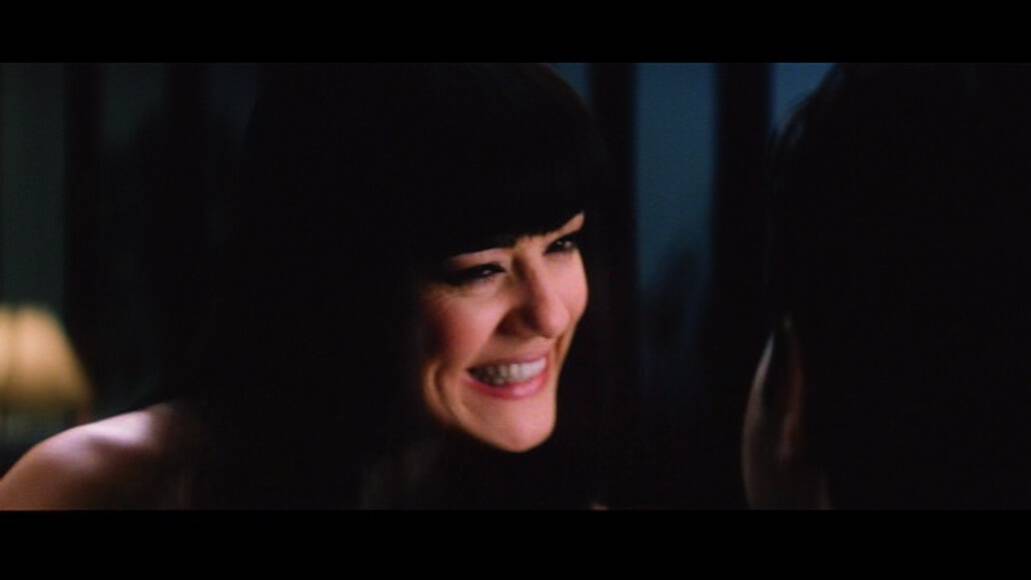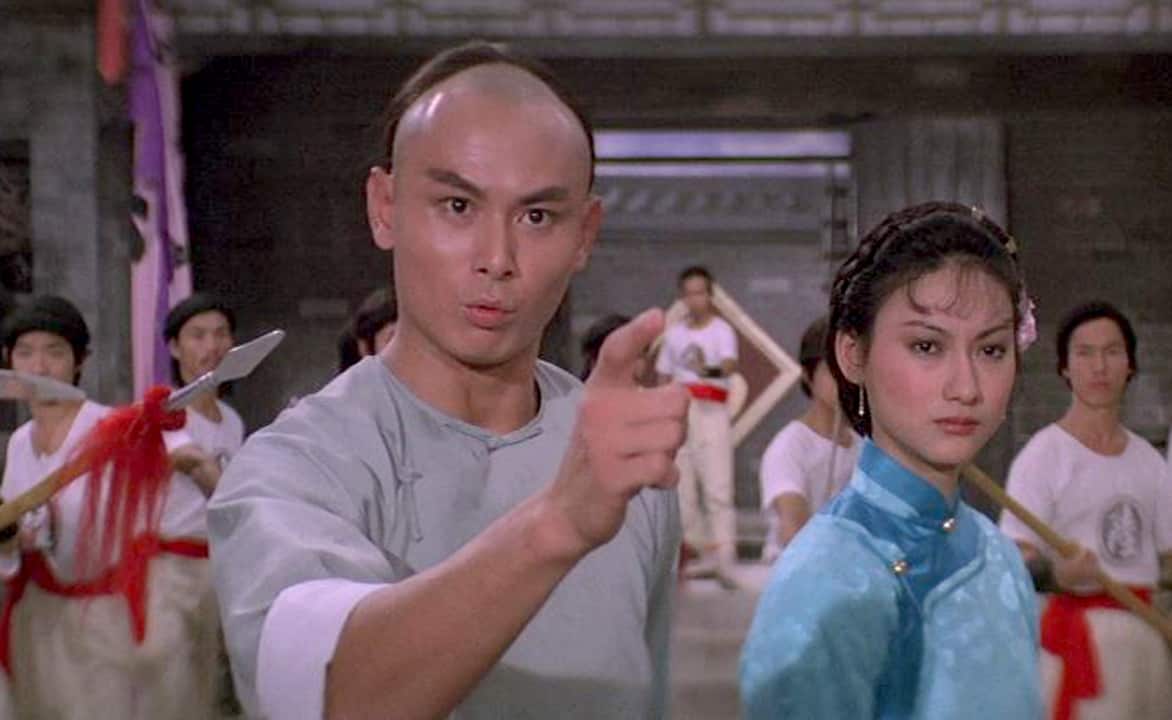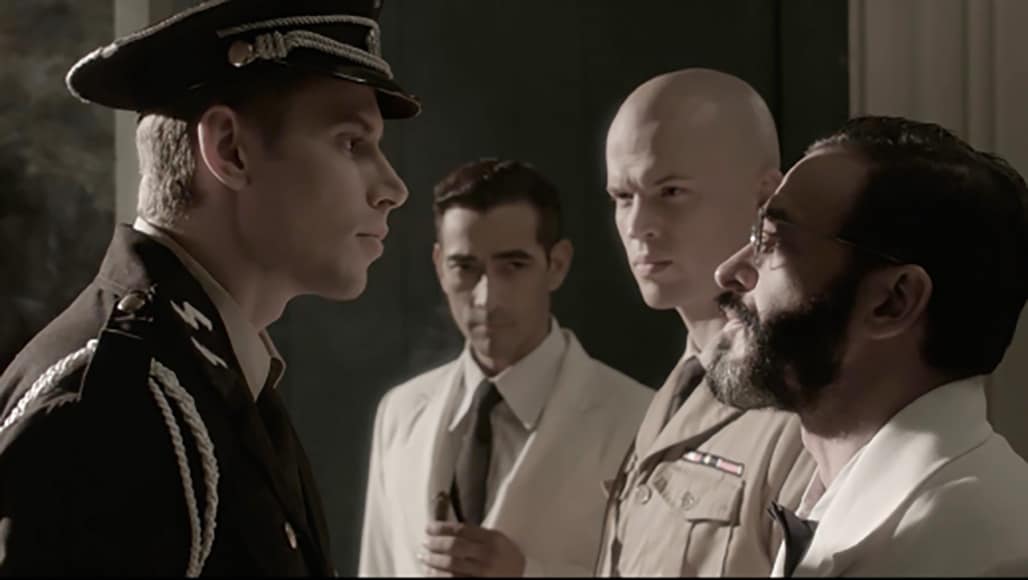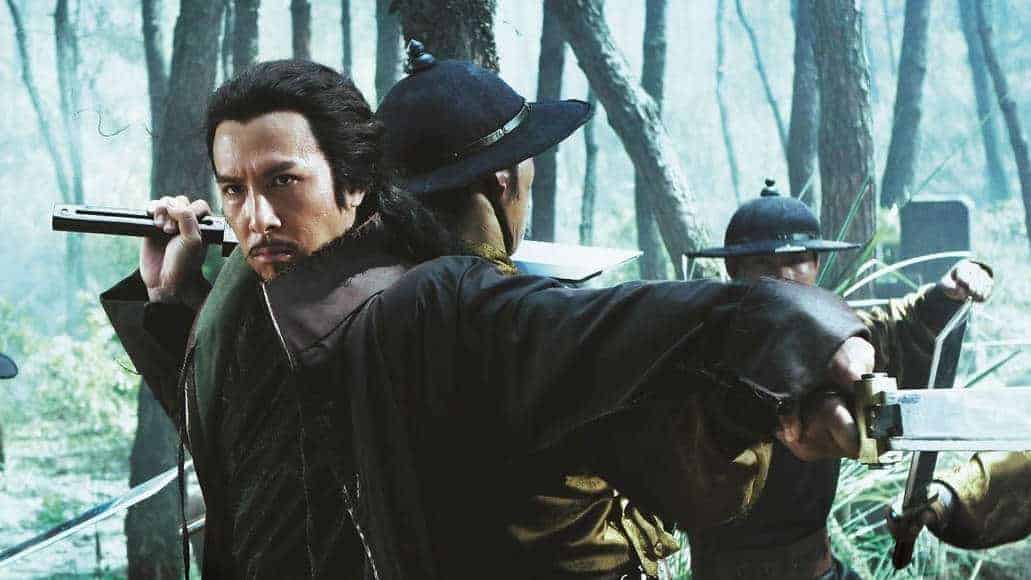Film-triptychs have been a source of masterpieces for Asian cinema for many decades, with works like Wong Kar-Wai's “Chungking Express“, Hou Hsiao-Hsien's “Three Times” and more recently Jia Zhangke's “Mountains May Depart”. Taiwanese Wi Ding Ho makes his own effort at the triptych by implementing an additional cinematic trick: reverse chronological order.
The story begins with a death, while a Taiwanese rendition of Ritchie Valens's “Oh Donna” is playing in the background, before it turns to its first segment. The setting is at Taipei in 2056, but the events unfolding could be of any decade: The protagonist, 60-years-old Zhang Dong Ling barges into a ballroom dance session only to attack the man dancing with his wife, which is soon revealed to have been estranged from him for many years. A violent scene in the hospital and a more tender one with his daughter conclude this segment, while a search for a girl Zhang used to know is placed in the middle.
The loss of identity due to technological progress and particularly cloning is a main theme of this segment, with Wi Ding Ho also portraying a bleak future, where every individual's actions are monitored through implants. The traditional values of love and family are also here however, as he seems to state that many things will change, but human mentality will remain the same. Cinematographer Jean Louis Vialard paints this segment with the regular, futuristic neon colors, although some elements of decay are also present, particularly in the whorehouse, in complete contrast with the rather polished and intensely lighted setting of the hospital. Jack Cao as Zhang gives a rather captivating performance as the violent, frustrated, but also regretful and sensitive.
The second segment takes place a few decades earlier, with Zhang working as a policeman but having trouble due to his unwillingness to take bribes. However, the true shock for him comes when he discovers his wife having sex with a senior officer, in a scene that presents the roots of his behaviour in the first segment. After a fight with his “adversary” brings another hit to his manhood, a completely frustrated Zhang spends the night with Ara, a French thieving prostitute he has arrested in the beginning of the segment, in a trip to the unknown underground of the city.

Lee Hong Chi gives an interesting performance as the protagonist this time, although his chemistry with Louise Grinberg, who plays Ara, is questionable, to say the least. Louis Vialard takes a more mainstream approach this time, although the two sex scenes are rather interestingly shot, and the various trips into the night, quite intriguing, both visually and contextually.
The third part deals with a teenager Zhang, spending the night in a police precinct along with a woman named Big Sister Wang, who seems to be a gangster boss. As their relationship is revealed to be deeper, the segment takes a rather dramatic turn, which sheds even more light to Zhang's persona, with the shattering ending being at least as impressive as the beginning of the film.
I felt that this part is the strongest in the movie, particularly due to the exceptional performance of Ding Ning as Sister Wang. Xie Zhang Yin as the teenager Zhang is not bad, but he mostly reacts to Ding Ning's acting. The cinematography here takes a more theatrical approach, as most of the segment takes place in the precinct, although the last scenes are impressively cinematic.

Wi Ding Ho creates a rather analytical portrait of a man whose life was completely ruined due to the women in his life, with the three segments actually revealing him through the interaction with three quite different female presences, that share, however, a common trait: they were lost to him. In terms of narrative, I would say that a number of questions remain unanswered, but in general, the portrait is quite thorough, while the way the various segments are connected (or better, revealed to be connected) is probably the best aspect of Wi Ding Ho's efforts as director and scriptwriter.
In general, “Cities of Last Things” is a good looking, meaningful and entertaining film, which manages to retain interest and occasionally even shock throughout the 107 minutes of its duration, and in general a more than worthy effort, in a style similar to “Long Day's Journey into Night“















